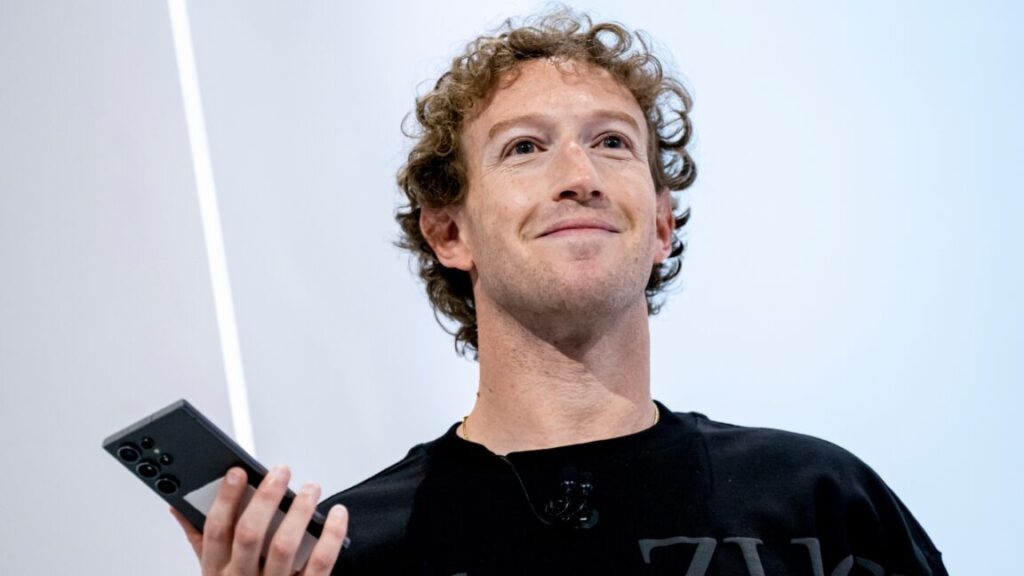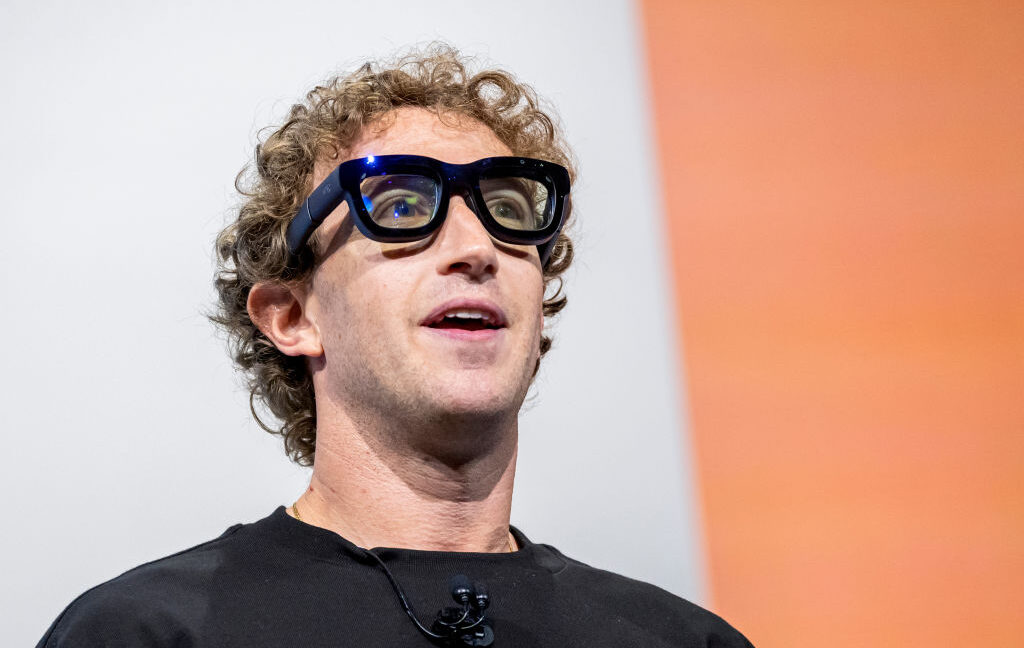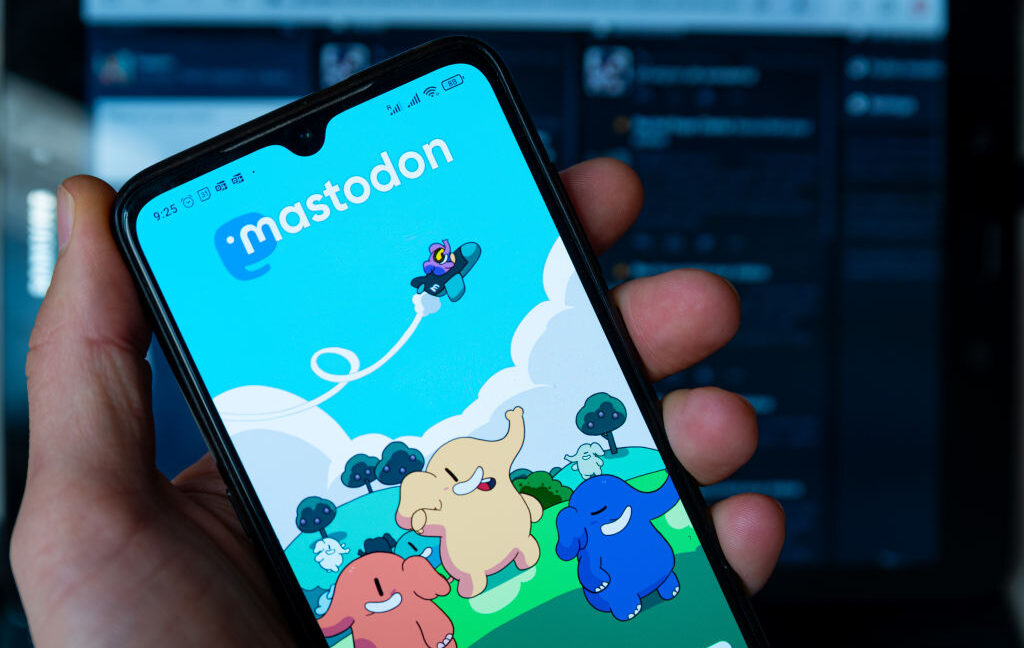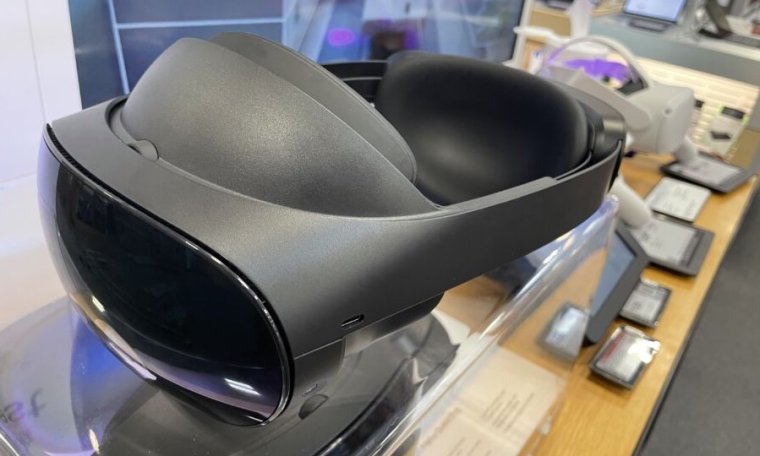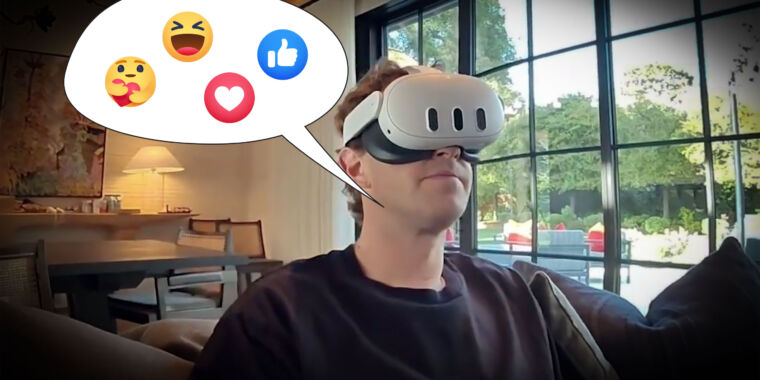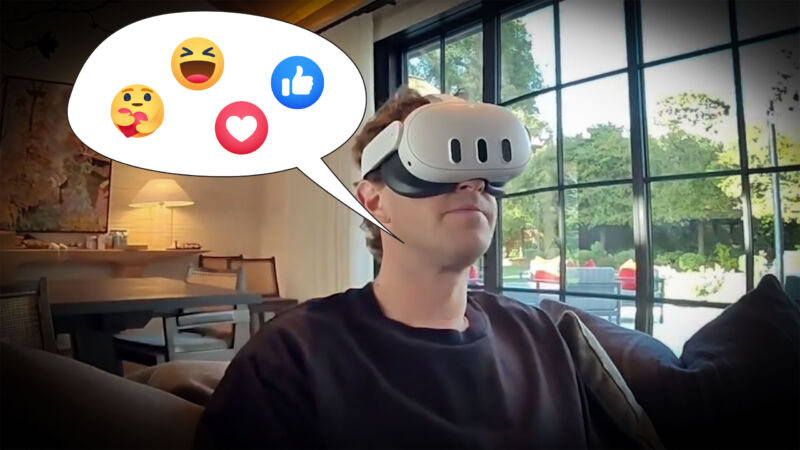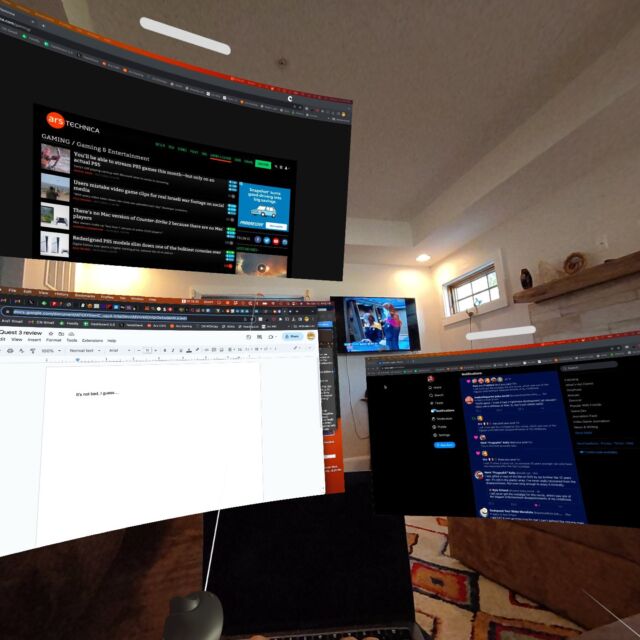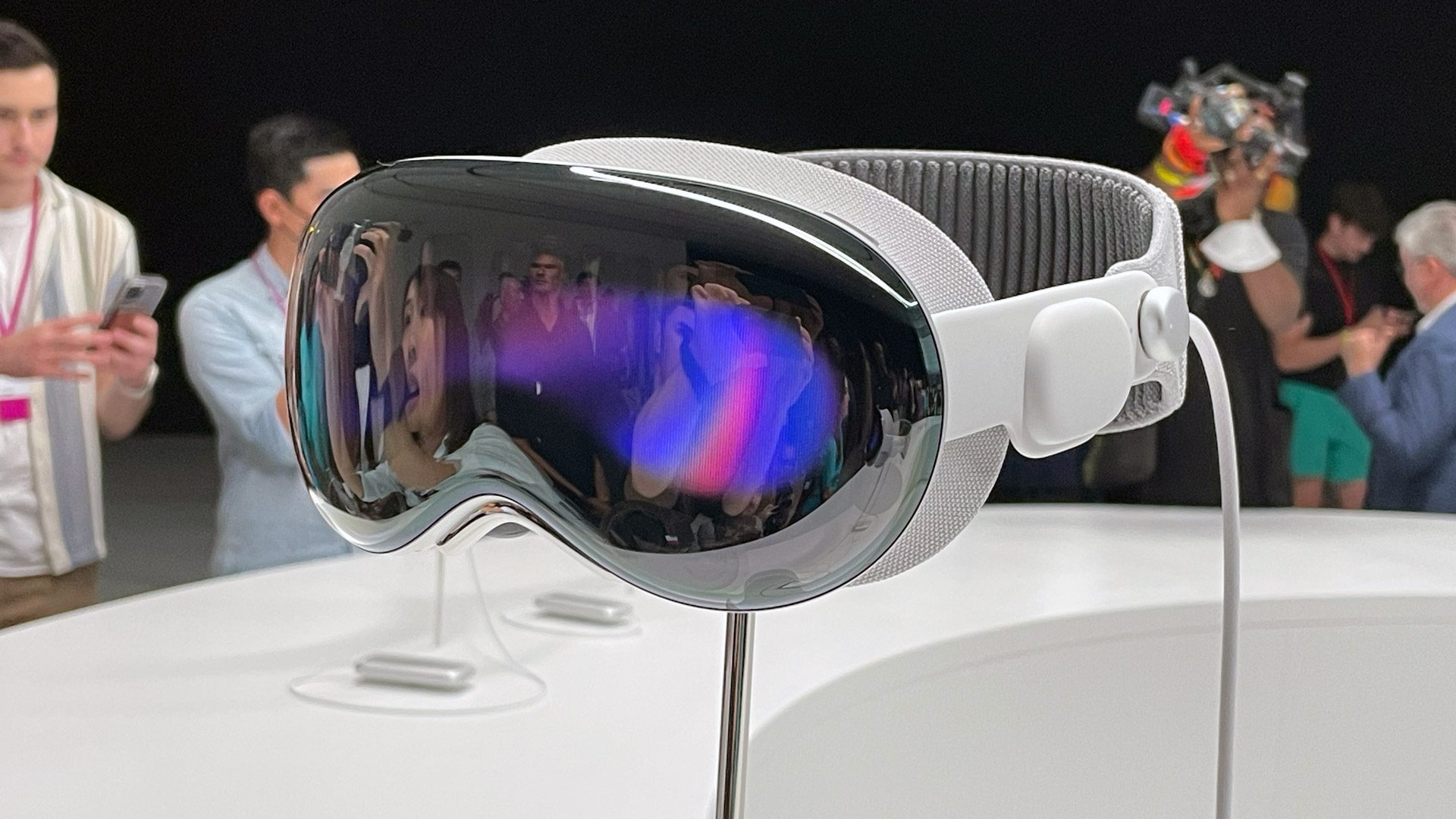Mark Zuckerberg’s illegal school drove his neighbors crazy
Neighbors complained about noise, security guards, and hordes of traffic.
An entrance to Mark Zuckerberg’s compound in Palo Alto, California. Credit: Loren Elliott/Redux
The Crescent Park neighborhood of Palo Alto, California, has some of the best real estate in the country, with a charming hodgepodge of homes ranging in style from Tudor revival to modern farmhouse and contemporary Mediterranean. It also has a gigantic compound that is home to Mark Zuckerberg, his wife Priscilla Chan, and their daughters Maxima, August, and Aurelia. Their land has expanded to include 11 previously separate properties, five of which are connected by at least one property line.
The Zuckerberg compound’s expansion first became a concern for Crescent Park neighbors as early as 2016, due to fears that his purchases were driving up the market. Then, about five years later, neighbors noticed that a school appeared to be operating out of the Zuckerberg compound. This would be illegal under the area’s residential zoning code without a permit. They began a crusade to shut it down that did not end until summer 2025.
WIRED obtained 1,665 pages of documents about the neighborhood dispute—including 311 records, legal filings, construction plans, and emails—through a public record request filed to the Palo Alto Department of Planning and Development Services. (Mentions of “Zuckerberg” or “the Zuckerbergs” appear to have been redacted. However, neighbors and separate public records confirm that the property in question belongs to the family. The names of the neighbors who were in touch with the city were also redacted.)
The documents reveal that the school may have been operating as early as 2021 without a permit to operate in the city of Palo Alto. As many as 30 students might have enrolled, according to observations from neighbors. These documents also reveal a wider problem: For almost a decade, the Zuckerbergs’ neighbors have been complaining to the city about noisy construction work, the intrusive presence of private security, and the hordes of staffers and business associates causing traffic and taking up street parking.
Over time, neighbors became fed up with what they argued was the city’s lack of action, particularly with respect to the school. Some believed that the delay was because of preferential treatment to the Zuckerbergs. “We find it quite remarkable that you are working so hard to meet the needs of a single billionaire family while keeping the rest of the neighborhood in the dark,” reads one email sent to the city’s Planning and Development Services Department in February. “Just as you have not earned our trust, this property owner has broken many promises over the years, and any solution which depends on good faith behavioral changes from them is a failure from the beginning.”
Palo Alto spokesperson Meghan Horrigan-Taylor told WIRED that the city “enforces zoning, building, and life safety rules consistently, without regard to who owns a property.” She also refuted the claim that neighbors were kept in the dark, claiming that the city’s approval of construction projects at the Zuckerberg properties “were processed the same way they are for any property owner.” She added that, though some neighbors told the city they believe the Zuckerbergs received “special treatment,” that is not accurate.
“Staff met with residents, conducted site visits, and provided updates by phone and email while engaging the owner’s representative to address concerns,” Horrigan-Taylor said. “These actions were measured and appropriate to abate the unpermitted use and responsive to neighborhood issues within the limits of local and state law.”
According to The New York Times, which first reported on the school’s existence, it was called “Bicken Ben School” and shared a name with one of the Zuckerbergs’ chickens. The listing for Bicken Ben School, or BBS for short, in a California Department of Education directory claims the school opened on October 5, 2022. This, however, is the year after neighbors claim to have first seen it operating. It’s also two and a half years after Sara Berge—the school’s point of contact, per documents WIRED obtained from the state via public record request—claims to have started her role as “head of school” for a “Montessori pod” at a “private family office” according to her LinkedIn profile, which WIRED viewed in September and October. Berge did not respond to a request to comment.
Between 2022 and 2025, according to the documents Bicken Ben filed to the state, the school grew from nine to 14 students ranging from 5 to 10 years old. Neighbors, however, estimated that they observed 15 to 30 students. Berge similarly claimed on her LinkedIn profile to have overseen “25 children” in her job. In a June 2025 job listing for “BBS,” the school had a “current enrollment of 35–40 students and plans for continued growth,” which the listing says includes a middle school.
In order for the Zuckerbergs to run a private school on their land, which is in a residential zone, they need a “conditional use” permit from the city. However, based on the documents WIRED obtained, and Palo Alto’s public database of planning applications, the Zuckerbergs do not appear to have ever applied for or received this permit.
Per emails obtained by WIRED, Palo Alto authorities told a lawyer working with the Zuckerbergs in March 2025 that the family had to shut down the school on its compound by June 30. A state directory lists BBS, the abbreviation for Bicken Ben School, as having operated until August 18, and three of Zuckerberg’s neighbors—who all requested anonymity due to the high-profile nature of the family—confirmed to WIRED in late September that they had not seen or heard students being dropped off and picked up on weekdays in recent weeks.
However, Zuckerberg family spokesperson Brian Baker tells WIRED that the school didn’t close, per se. It simply moved. It’s not clear where it is now located, or whether the school is operating under a different name.
In response to a detailed request for comment, Baker provided WIRED with an emailed statement on behalf of the Zuckerbergs. “Mark, Priscilla and their children have made Palo Alto their home for more than a decade,” he said. “They value being members of the community and have taken a number of steps above and beyond any local requirements to avoid disruption in the neighborhood.”
“Serious and untenable”
By the fall of 2024, Zuckerberg’s neighbors were at their breaking point. At some point in mid-2024, according to an email from then mayor Greer Stone, a group of neighbors had met with Stone to air their grievances about the Zuckerberg compound and the illegal school they claimed it was operating. They didn’t arrive at an immediate resolution.
In the years prior, the city had received several rounds of complaints about the Zuckerberg compound. Complaints for the address of the school were filed to 311, the nationwide number for reporting local non-emergency issues, in February 2019, September 2021, January 2022, and April 2023. They all alleged that the property was operating illegally under city code. Both were closed by the planning department, which found no rule violations. An unknown number of additional complaints, mentioned in emails among city workers, were also made between 2020 and 2024—presumably delivered via phone calls, in person, or to city departments not included in WIRED’s public record request.
In December 2020, building inspection manager Korwyn Peck wrote to code enforcement officer Brian Reynolds about an inspection he attempted to conduct around the Zuckerberg compound, in response to several noise and traffic complaints from neighbors. He described that several men in SUVs had gathered to watch him, and a tense conversation with one of them had ensued. “This appears to be a site that we will need to pay attention to,” Peck wrote to Reynolds.
“We have all been accused of ‘not caring,’ which of course is not true,” Peck added. “It does appear, however, with the activity I observed tonight, that we are dealing with more than four simple dwellings. This appears to be more than a homeowner with a security fetish.”
In a September 11, 2024, email to Jonathan Lait, Palo Alto’s director of planning and development services and Palo Alto city attorney Molly Stump, one of Zuckerberg’s neighbors alleged that since 2021, “despite numerous neighborhood complaints” to the city of Palo Alto, including “multiple code violation reports,” the school had continued to grow. They claimed that a garage at the property had been converted into another classroom, and that an increasing number of children were arriving each day. Lait and Stump did not respond to a request to comment.
“The addition of daily traffic from the teachers and parents at the school has only exacerbated an already difficult situation,” they said in the email, noting that the neighborhood has been dealing with an “untenable traffic” situation for more than eight years.
They asked the city to conduct a formal investigation into the school on Zuckerberg’s property, adding that their neighbors are also “extremely concerned” about the school, and “are willing to provide eyewitness accounts in support of this complaint.”
Over the next week, another neighbor forwarded this note to all six Palo Alto city council members, as well as then mayor Stone. One of these emails described the situation as “serious” and “untenable.”
“We believe the investigation should be swift and should yield a cease and desist order,” the neighbor wrote.
Lait responded to the neighbor who sent the original complaint on October 15, claiming that he’d had an “initial call” with a “representative” of the property owners and that he was directing the city’s code enforcement staff to reexamine the property.
On December 11, 2024, the neighbor claimed that since one of their fellow neighbors had spoken to a Zuckerberg representative, and the representative had allegedly admitted that there was a school on the property, “it seems like an open and shut case.”
“Our hope is that there is an equal process in place for all residents of Palo Alto regardless of wealth or stature,” the neighbor wrote. “It is hard to imagine that this kind of behavior would be ignored in any other circumstance.”
That same day, Lait told Christine Wade, a partner at SSL Law Firm—who, in an August 2024 email thread, said she was “still working with” the Zuckerberg family—that the Zuckerbergs lacked the required permit to run a school in a residential zone.
“Based on our review of local and state law, we believe this use constitutes a private school use in a residential zone requiring a conditional use permit,” Lait wrote in an email to Wade. “We also have not found any state preemptions that would exclude a use like this from local zoning requirements.” Lait added that a “next step,” if a permit was not obtained, would be sending a cease and desist to the property owner.
According to several emails, Wade, Lait, and Mark Legaspi, CEO of the Zuckerberg family office called West 10, went on to arrange an in-person meeting at City Hall on January 9. (This is the first time that the current name of the Zuckerberg family office, West 10, has been publicly disclosed. The office was previously called West Street.) Although WIRED did not obtain notes from the meeting, Lait informed the neighbor on January 10 that he had told the Zuckerbergs’ “representative” that the school would need to shut down if it didn’t get a conditional use permit or apply for that specific permit.
Lait added that the representative would clarify what the family planned to do in about a week; however, he noted that if the school were to close, the city may give the school a “transition period” to wind things down. Wade did not respond to a request for comment.
“At a minimum, give us extended breaks”
There was another increasingly heated conversation happening behind the scenes. On February 3 of this year, at least one neighbor met with Jordan Fox, an employee of West 10.
It’s unclear exactly what happened at this meeting, or if the neighbor who sent the September 11 complaint was in attendance. But a day after the meeting with Fox, two additional neighbors added their names to the September 11 complaint, per an email to Lait.
On February 12, a neighbor began an email chain with Fox. This email was forwarded to Planning Department officials two months later. The neighbor, who seemingly attended the meeting, said they had “connected” with fellow neighbors “to review and revise” an earlier list of 14 requests that had been reportedly submitted to the Zuckerbergs at some previous point. The note does not specify the contents of this original list of requests, but of the 19 neighbors who originally contributed to it, they claimed that 15 had contributed to the revised list.
The email notes that the Zuckerbergs had been “a part of our neighborhood for many years,” and that they “hope that this message will start an open and respectful dialogue,” built upon the “premise of how we all wish to be treated as neighbors.”
“Our top requests are to minimize future disruption to the neighborhood and proactively manage the impact of the many people who are affiliated with you,” the email says. This includes restricting parking by “security guards, contractors, staff, teachers, landscapers, visitors, etc.” In the event of major demolitions, concrete pours, or large parties, the email asks for advance notice, and for dedicated efforts to “monitor and mitigate noise.”
The email also asks the Zuckerbergs to, “ideally stop—but at a minimum give us extended breaks from—the acquisition, demolition and construction cycle to let the neighborhood recover from the last eight years of disruption.”
At this point, the email requests that the family “abide by both the letter and the spirit of Palo Alto” by complying with city code about residential buildings.
Specifically, it asks the Zuckerbergs to get a use permit for the compound’s school and to hold “a public hearing for transparency.” It also asks the family to not expand its compound any further. “We hope this will help us get back the quiet, attractive residential neighborhood that we all loved so much when we chose to move here.”
In a follow-up on March 4, Fox acknowledged the “unusual” effects that come with being neighbors with Mark Zuckerberg and his family.
“I recognize and understand that the nature of our residence is unique given the profile and visibility of the family,” she wrote. “I hope that as we continue to grow our relationship with you over time, you will increasingly enjoy the benefits of our proximity—e.g., enhanced safety and security, shared improvements, and increased property values.”
Fox said that the Zuckerbergs instituted “a revised parking policy late last year” that should address their concerns, and promised to double down on efforts to give advanced notice about construction, parties, and other potential disruptions.
However, Fox did not directly address the unpermitted school and other nonresidential activities happening at the compound. She acknowledged that the compound has “residential support staff” including “childcare, culinary, personal assistants, property management, and security,” but said that they have “policies in place to minimize their impact on the neighborhood.”
It’s unclear if the neighbor responded to Fox.
“You have not earned our trust”
While these conversations were happening between Fox and Zuckerberg’s neighbors, Lait and others at the city Planning Department were scrambling to find a solution for the neighbor who complained on September 11, and a few other neighbors who endorsed the complaint in September and February.
Starting in February, one of these neighbors took the lead on following up with Lait. They asked him for an update on February 11, and heard back a few days later. He didn’t have any major updates, “but after conversations with the family’s representatives, he said he was exploring whether a “subset of children” could continue to come to the school sometimes for “ancillary” uses.
“I also believe a more nuanced solution is warranted in this case,” Lait added. Ideally, such a solution would respond to the neighbors’ complaints, but allow the Zuckerbergs to “reasonably be authorized by the zoning code.”
The neighbor wasn’t thrilled. The next day, they replied and called the city’s plan “unsatisfactory.”
“The city’s ‘nuanced solution’ in dealing with this serial violator has led to the current predicament,” they said (referring to the nuanced solution Lait mentioned in his last email.)
Horrigan-Taylor, the Palo Alto spokesperson, told WIRED that Lait’s mention of a “nuanced” solution referred to “resolving, to the extent permissible by law, neighborhood impacts and otherwise permitted use established by state law and local zoning.”
“Would I, or any other homeowner, be given the courtesy of a ‘nuanced solution’ if we were in violation of city code for over four years?” they added.
“Please know that you have not earned our trust and that we will take every opportunity to hold the city accountable if your solution satisfies a single [redacted] property owner over the interests of an entire neighborhood,” they continued.
“If you somehow craft a ‘nuanced solution’ based on promises,” the neighbor said, “the city will no doubt once again simply disappear and the damage to the neighborhood will continue.”
Lait did not respond right away. The neighbor followed up on March 13, asking if he had “reconsidered” his plan to offer a “‘nuanced solution’ for resolution of these ongoing issues by a serial code violator.” They asked when the neighborhood could “expect relief from the almost decade long disruptions.”
Behind the scenes, Zuckerberg’s lawyers were fighting to make sure the school could continue to operate. In a document dated March 14, Wade argues that she believed the activities at “the Property” “represent an appropriate residential use based on established state law as well as constitutional principles.”
Wade said that “the Family” was in the process of obtaining a “Large Family Daycare” license for the property, which is legal for a cohort of 14 or fewer children all under the age of 10.
“We consistently remind our vendors, guests, etc. to minimize noise, not loiter anywhere other than within the Family properties, and to keep areas clean,” Wade added in the letter. Wade also attached an adjusted lease corresponding with the address of the illicit school, which promises that the property will be used for only one purpose. The exact purpose is redacted.
On March 25, Lait told the neighbor that the city’s June 30 deadline for the Zuckerbergs to shut down the school had not changed. However, the family’s representative said that they were pursuing a daycare license. These licenses are granted by the state, not the city of Palo Alto.
The subtext of this email was that if the state gave them a daycare licence, there wasn’t much the city could do. Horrigan-Taylor confirmed with WIRED that “state licensed large family day care homes” do not require city approval, adding that the city also “does not regulate homeschooling.”
“Thanks for this rather surprising information,” the neighbor replied about a week later. “We have repeatedly presented ideas to the family over the past 8 years with very little to show for it, so from our perspective, we need to understand the city’s willingness to act or not to act.”
Baker told WIRED that the Zuckerbergs never ended up applying for a daycare license, a claim that corresponds with California’s public registry of daycare centers. (There are only two registered daycare centers in Palo Alto, and neither belongs to the Zuckerbergs. The Zuckerbergs’ oldest child, Maxima, will also turn 10 in December and consequently age out of any daycare legally operating in California.)
Horrigan-Taylor said that a representative for the Zuckerbergs told the city that the family wanted to move the school to “another location where private schools are permitted by right.”
In a school administrator job listing posted to the Association Montessori International website in July 2022 for “BBS,” Bicken Ben head of school Berge claims that the school had four distinct locations, and that applicants must be prepared to travel six to eight weeks per year. The June 2025 job listing also says that the “year-round” school spans “across multiple campuses,” but the main location of the job is listed as Palo Alto. It’s unclear where the other sites are located.
Most of the Zuckerbergs’ neighbors did not respond to WIRED’s request for comment. However, the ones that did clearly indicated that they would not be forgetting the Bicken Ben saga, or the past decade of disruption, anytime soon.
“Frankly I’m not sure what’s going on,” one neighbor said, when reached by WIRED via landline. “Except for noise and construction debris.”
This story originally appeared on wired.com.
Mark Zuckerberg’s illegal school drove his neighbors crazy Read More »



